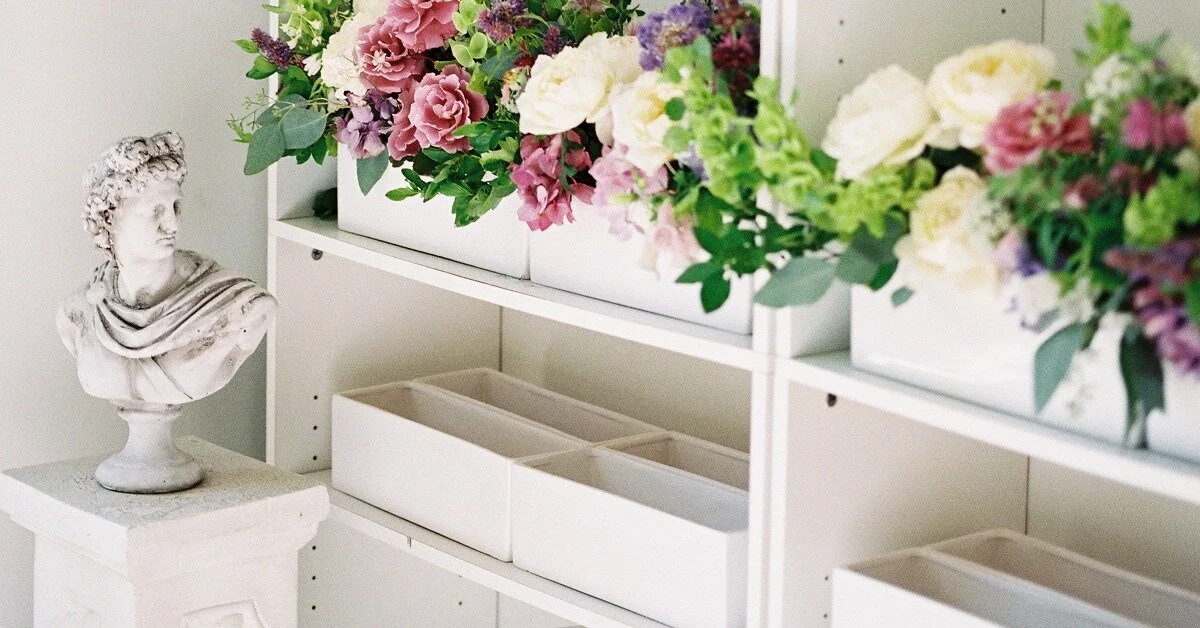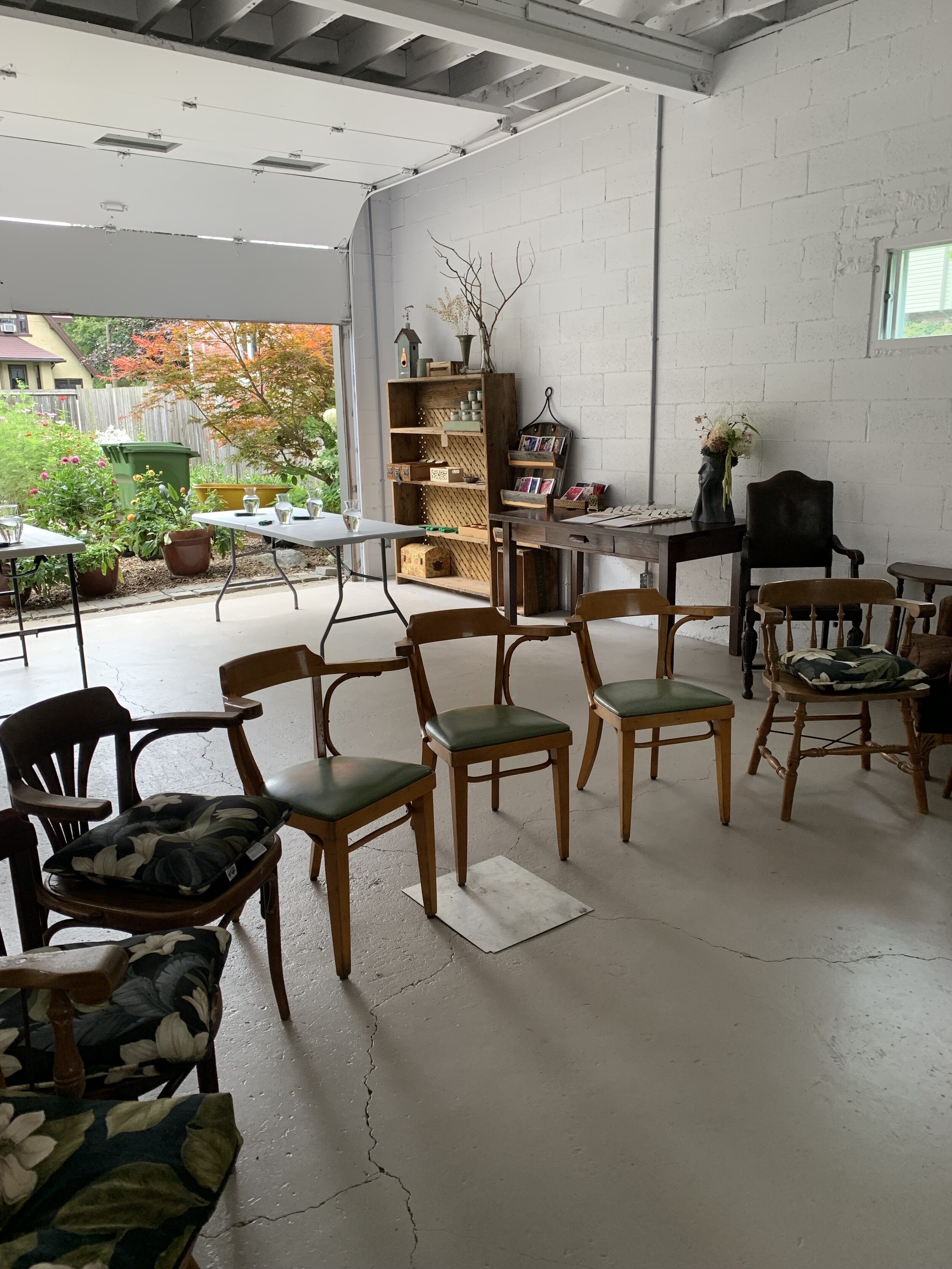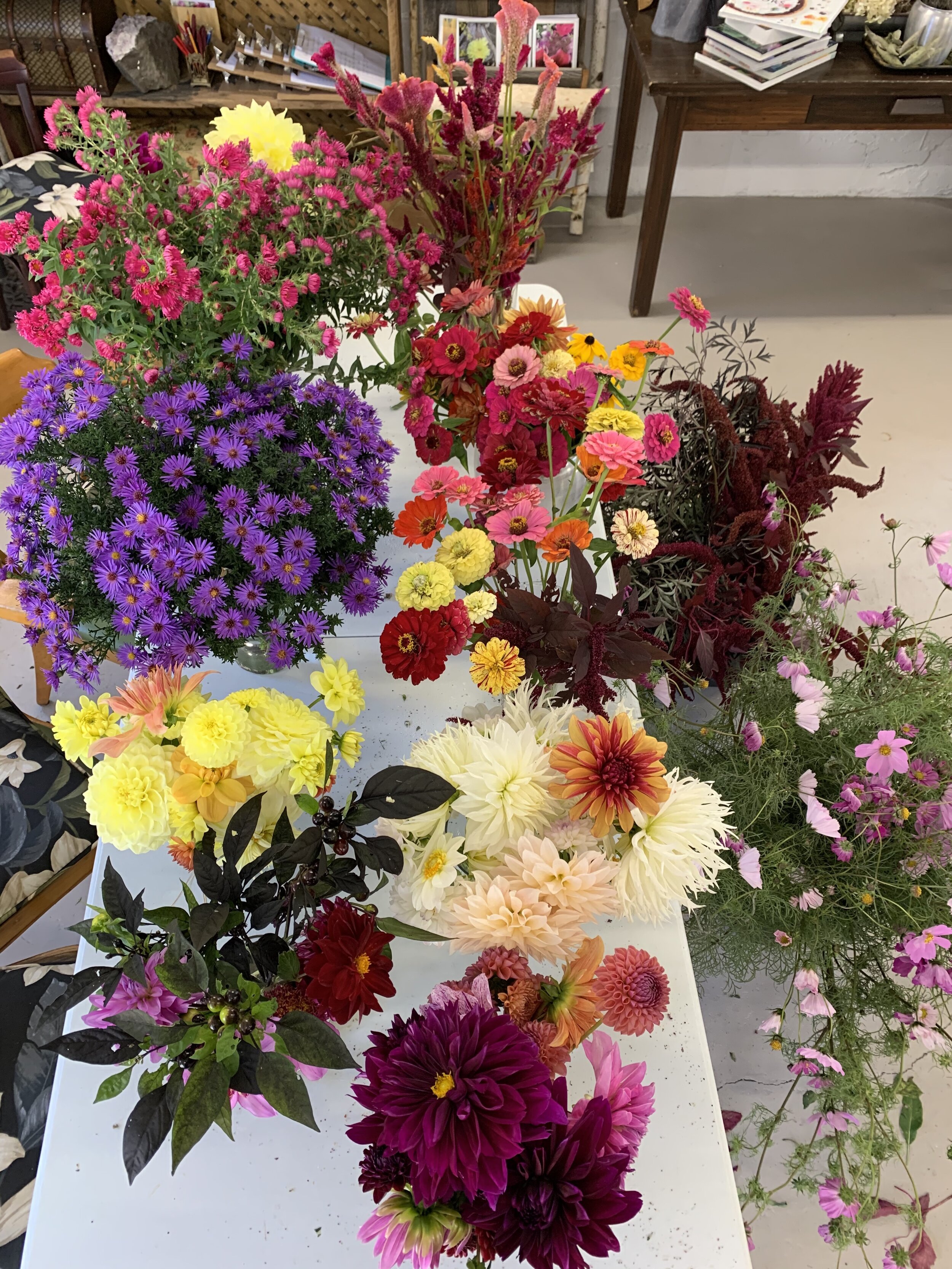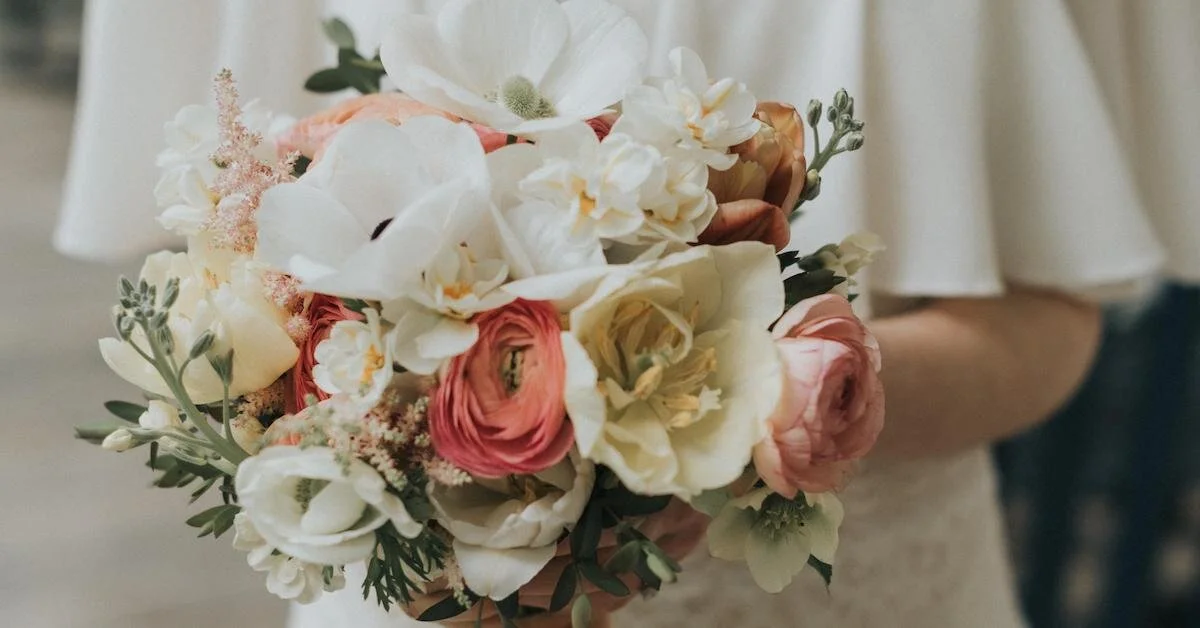Tips for Creating Your Floral Studio from Scratch
Whether you are a flower grower, a florist, or a workshop leader, designing a floral workspace can be a creative process that will inspire you each time you enter it.
At first, creating your home floral studio workspace can seem daunting as you stand looking at a room likely filled with extra supplies, boxes, and “just in case’” building materials.
However, in this article, we’ll cover some useful tips to support you in this transformative process—and hopefully make this journey a little easier!
Determine a Clear Purpose for Your Studio WorkSpace
As with any project, setting a clear vision at the onset is critical.
Will the space be used for floral production for events, DIY groups, photoshoots, community groups, or a gift shop?
How many persons will it comfortably accommodate—especially during COVID times—or will it be a personal space for your use only?
Do you want to use your space year-round or only seasonally?
Creating a vision board of workspaces you’re inspired by on a large poster board or an online Pinterest board will help focus your energies more visually.
Note that—although it is recommended to have a clear vision of the space to get started—you should feel free to allow this vision to evolve as you transform the space and redefine your goals.
Choose a Convenient Location
Ideally, your workshop would be in or close to your home/production base—or at least easily accessible.
Do your initial homework to determine the municipal regulations regarding a commercial space that may involve some traffic flow. Several municipalities allow for home-based business but restrict the amount of traffic flow that may result.
Establish a Budget
It is easy to let the budget get out of hand, but some clever planning of the transformation of your space over time will ease the financial burden.
For example, gather supplies during sales or add charm to your space with secondhand furniture. Steps can be spread out over the years, if needed.
Make a Plan
Establishing steps in the plan to create your home studio will help you tackle each one without feeling overwhelmed by the whole process.
First, empty the space so that you can better visualize the result. Be ruthless, but if you can’t be, elicit the help of a trusted friend. Then, clean the space so that you can evaluate any repairs or upgrades required.
Remove stained or broken wall coverings
Check your insulation
Pressure wash all that you can
Refinish or redo the flooring to ensure a comfortable surface and one easily cleaned
Rally Friends and Family for Help
Don’t hesitate to put some feelers out there for help from family, friends, and neighbors. They can quickly become great resources for various tradespeople or may have some talents they are willing to share to help you realize your dream and vision.
To keep costs down, consider a trade option: their services for a flower subscription for themselves or a loved one. You will be amazed at how people in your surroundings are more than happy to help you reach your goal.
Structural Considerations
Don’t be surprised if you need to bring some features to code during your renovation. Electricity is a big one. You need to consider all possible configurations to plan where you will need outlets and if the space will be heated or subject to temperature/ humidity fluctuations.
A water source is a must whether it is outside or inside your space. This will not only allow you to wash pots etc. but also permit your workshop participants (if you’ll be hosting workshops) the option of washing their hands as needed.
If you do not have an indoor plumbing option, there are outdoor stainless-steel washbasins that can be hooked up to a hose. By using environmentally friendly soap, greywater can be used to water the gardens.
Insulation may be required if you want to use your space year-round.
Space Design for Optimal Flow and Use
Whether you have a large space or a small one, you’ll want to maximize the use by retaining a flexible furniture arrangement. This will allow you to adapt to your changing needs, including:
A comfortable space for meeting brides and/or event clients
Sufficient surfaces, tables, and chairs for flower arranging workshops
A clear wall space for gardening courses complete with slide shows
Vignette areas for photoshoot opportunities
Space for large event preparations
Areas for gardening-related tasks like garden tool maintenance
Tuber and seed processing
Storage and shelving units are other essential components necessary in your space.
A flexible setup will enable you to adapt to COVID protocols in place in your region.
White walls will offer a great backdrop for flower arrangements. However, you may want to have backdrops of various colours for photography.
Secondhand drapes, table cloths, or sheets are inexpensive options to use as backdrops. Creating a backdrop from plywood, textured with plaster and covered with paint, can provide an easy, affordable option as well.
Test your Space with Friends and Neighbours
Testing your space with people you trust will allow you to fine tune your studio and flow—but also your approach. Other benefits of testing your studio space include making sure your neighbours are on board and start the word of mouth recommendations.
Re-evaluate Your Needs
Creating an optimal floral studio space is an evolving process. Goals and interests may change over time as you use your space, so it’s okay to adapt to your changing needs.
Consider Other Sources of Income
Other income streams may materialize once your space is available, including your ability to host:
Community groups
Networking events
Writing workshops
Photography courses
Fashion photoshoots
Book club meetings
Wedding and baby showers
And more!
How will you know if you have succeeded in creating a wonderful space? You will likely have a perma-smile as you enter your studio and your guests will feel inspired and energized.
Enjoy the process! And then, enjoy your very own studio space!












